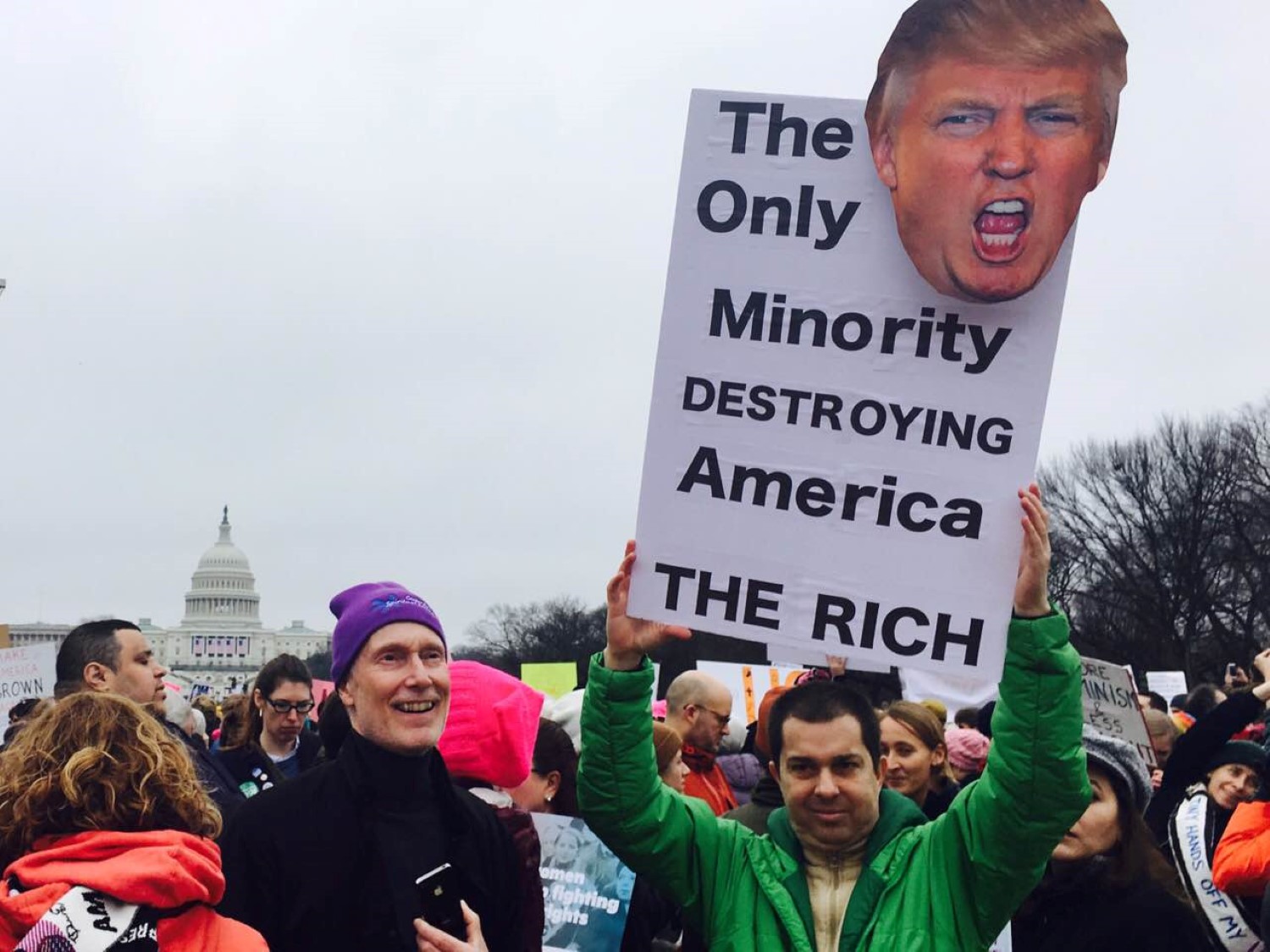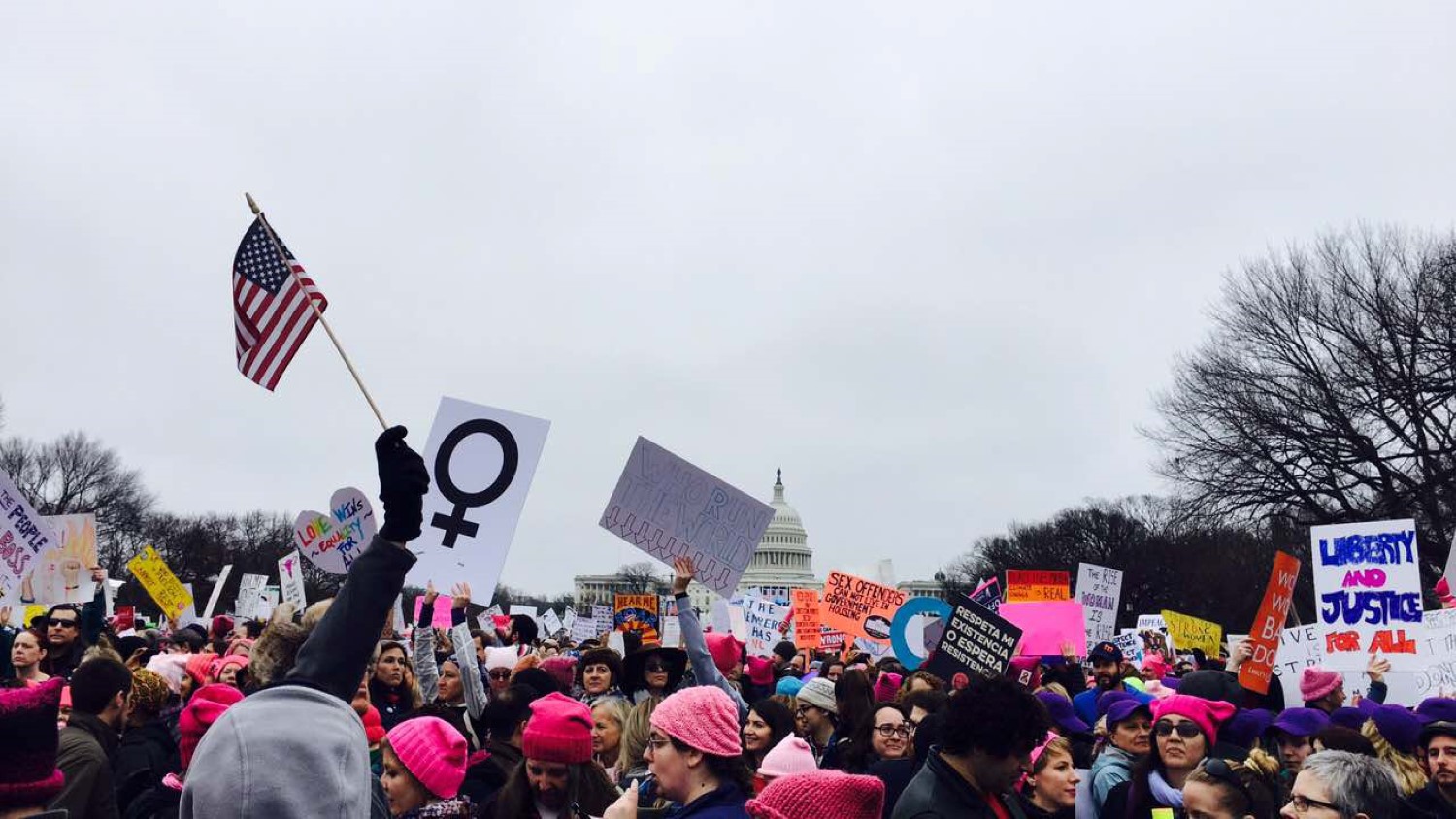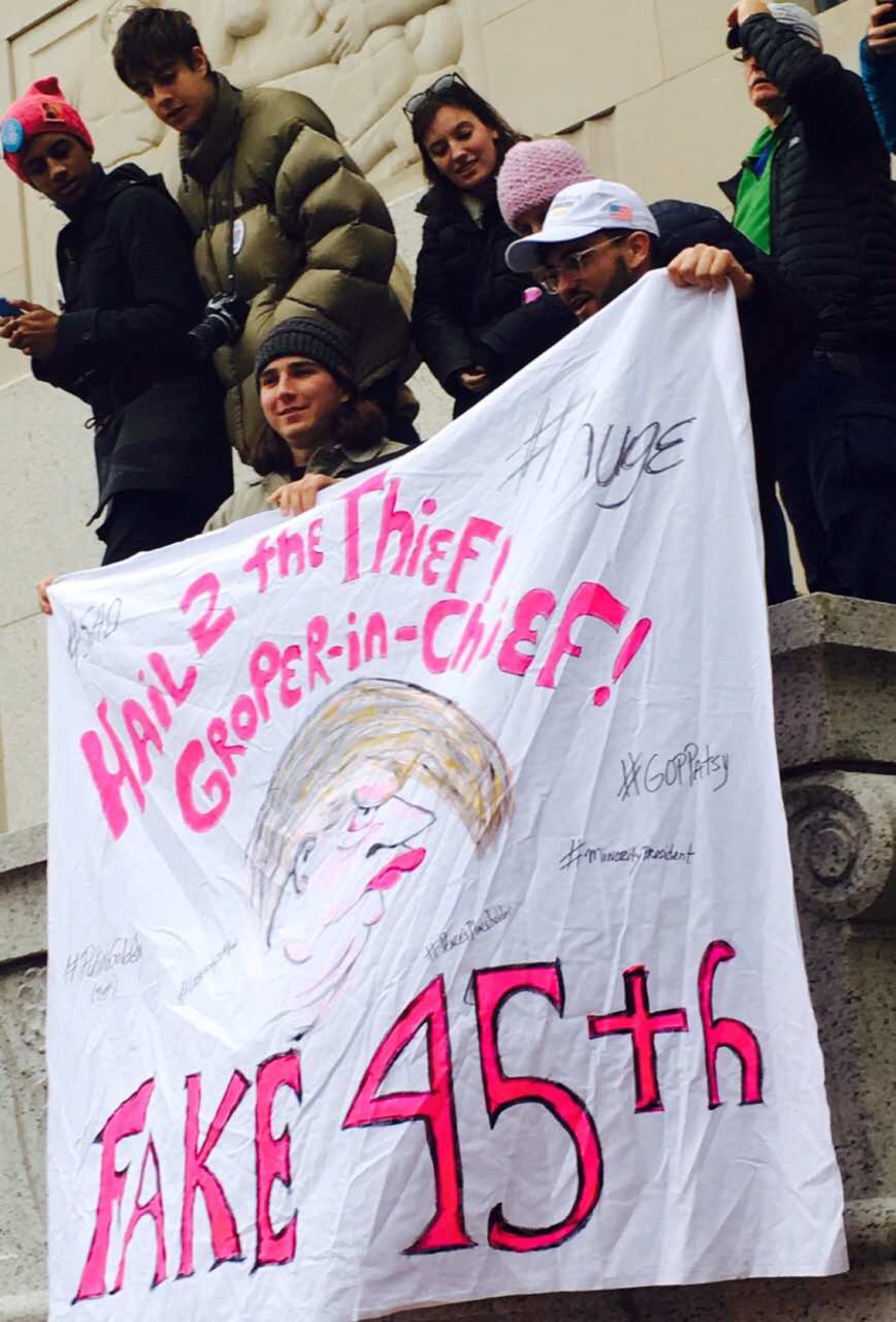WASHINGTON DC — The day after the US Presidential inauguration, an estimated 2.9 million demonstrators rallied in Washington DC and in cities all over the US, coming out against Donald Trump, his proposed policies, and the values expressed during his presidential campaign.
The mass rallies were organized as part of a global Women’s March—with hundreds of sister marches worldwide—transforming downtown Washington into a sea of wall-to-wall protestors from across the US. Participants expressed apprehension about the Trump administration’s stance on immigration, healthcare, racial equity, reproductive rights, LGBT rights, climate change, income distribution, sexual assault, violence, corruption, and continued protection of basic constitutional rights such as freedom of speech, press, and assembly.
“I do not appreciate what the new administration stands for. I do not like his hateful rhetoric, xenophobia, his misogyny,” said one 56-year-old social worker who attended the DC rally.

The Women’s March also brought to the surface long-standing issues about the power dynamics between white and minority women.
Republican Donald Trump won votes from 53 percent of white women, outperforming Democratic presidential nominee Hillary Clinton in that demographic. Women of color expressed concern that the initial organizers of the march were entirely white—a criticism that led to a change in leadership and an effort to embrace the struggles of minority and immigrant women as a central theme in the rally on Saturday.

Yet many demonstrators expressed concern about how Trump’s policies will impact groups other than their own.
Maria Clara Naranjo, a 26-year-old program coordinator who has worked with ethnic Karen refugees on the Thai-Burma border, said, “It is important for young people to voice out and show that they are not happy with the way the administration has been communicating. Just because we are privileged in certain ways does not mean that we are not going to be standing up for people who are not privileged in other ways.”
Reverend Lois Artis, a 65-year old retired minister from Washington DC, spoke on the gap between the experiences of white women and women of color.

“We face similar issues, but they are much more extreme for women of color. I think because we do not have, very often, the access that other women do.”
Reverend Artis expressed particular concern about “the lack of resolution on the issue of healthcare,” highlighting the high number of “single mothers, working women, who cannot afford to be without healthcare.”
Many protesters promised to maintain vigilance during the Trump Presidency, with many signs indicating that the public would be “watching” Trump, and promising to hold the President “accountable.”
“Ever since the election I feel like I am in mourning,” said one protester. “Every day I wake up and feel like I am living a bad nightmare, and unfortunately it is reality right now.”

















